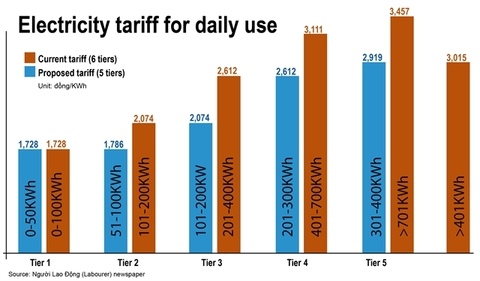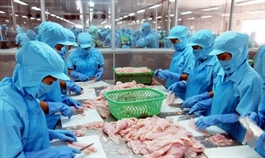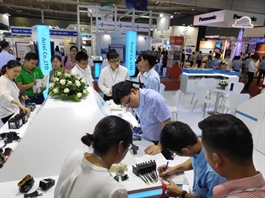MoIT proposes new electricity tariffs, fostering fairness and efficiency
MoIT proposes new electricity tariffs, fostering fairness and efficiency
The Ministry of Industry and Trade (MoIT) has released a draft of the Prime Minister's decision on the structure of retail electricity tariffs for public feedback. The draft proposes a new pricing scheme based on a percentage of the average retail price of electricity for different groups of users.
 |
The proposed scheme includes specific retail prices for various groups such as production, business, administrative, non-business, daily use, electric vehicle charging stations and tourist accommodation.
Regarding the retail electricity tariffs for daily use, the plan proposed by the MoIT, which suggests reducing the pricing tiers from six to five, is not much different from the proposal in September 2022. This change narrows the gap between the first steps and expands the pricing range for higher consumption levels.
Under the new plan, the first two steps are combined into tier 1, where the price for the first 100kWh is set at 90 per cent of the average retail price. Tier 2, which remains the same as before (101 to 20 kWh), has a price equal to 108 per cent of the average retail price. Tier 3 widens the consumption gap from 201 to 400kWh compared to before, priced at 136 per cent of the average retail price. Tier 4 covers consumption from 401-700kWh, priced at 162 per cent of the average retail price, while tier 5 includes consumption of 701kWh or more, with a price equal to 180 per cent of the average retail price.
These prices do not include value-added tax (VAT) and are based on the average retail price of electricity, which was adjusted in May 2023 to VND1,920.37 (8 US cent) per KWh.
With the new five-tier option, the lowest average retail price of electricity is VND1,728/KWh, and the highest is VND3,456/KWh (excluding VAT). The pricing scheme aims to maintain stable electricity prices for low-income households and those with low electricity usage while providing incentives for efficient electricity consumption.
The proposed changes will result in reduced electricity bills for 89 per cent of households using 700kWh or less. However, households consuming 701 kWh per month or more (2 per cent of households) will experience an increase in their electricity bills.
For production, business, administrative customers, electric vehicle charging stations, and tourist accommodation establishments, the prices are categorised based on voltage levels, ranging from 1 to 35kV, with the lowest price set at 54 per cent and the highest price at 167 per cent of the average retail price of electricity.
This draft also includes electricity prices for electric vehicle charging stations for the first time, ranging from 68 per cent to 205 per cent of the average retail price based on voltage level.
The Ministry of Industry and Trade has stated that the proposed retail prices aim to maintain consistency while affecting different customer groups to varying degrees. Some groups will benefit from reduced electricity bills, while others will face increases.
Dr. Ngo Tri Long, former director of the Price Market Research Institute at the Ministry of Finance, underlines the significance of constructing electricity tariffs that not only ensure social security policies but also support disadvantaged and low-income households.
Talking to Nguoi Lao Dong (Labourer) newspaper, Long emphasised the need to strike a balance between affordability and promoting energy conservation.
Meanwhile, economist Dinh Trong Thinh acknowledged the necessity of reducing the number of pricing tiers. However, he argued that the reduction from six to five steps does not bring about significant changes.
Instead, he proposes considering a three-step option, which could potentially streamline the tariff structure and enhance its effectiveness. Furthermore, he advocates for long-term fundamental changes, including the implementation of a competitive electricity market roadmap. Such changes would ultimately foster a more efficient and dynamic electricity market, aligning with global best practices and supporting sustainable development in the energy sector.
The draft decision also specifies that households classified as poor based on income criteria, as determined by the Prime Minister, will receive electricity subsidies. The monthly subsidy amount is equivalent to the cost of electricity usage of 30kWh, calculated based on the current retail price of electricity for household usage in tier 1.


























